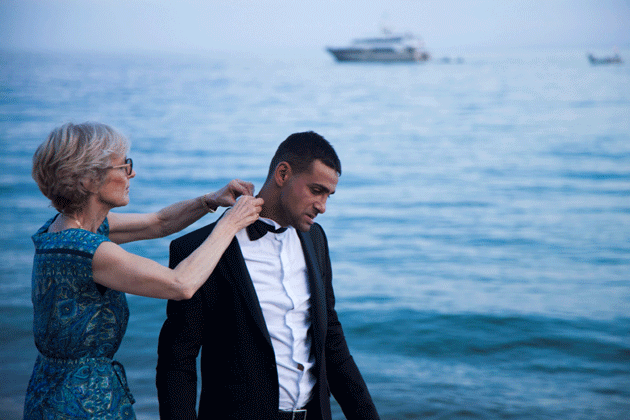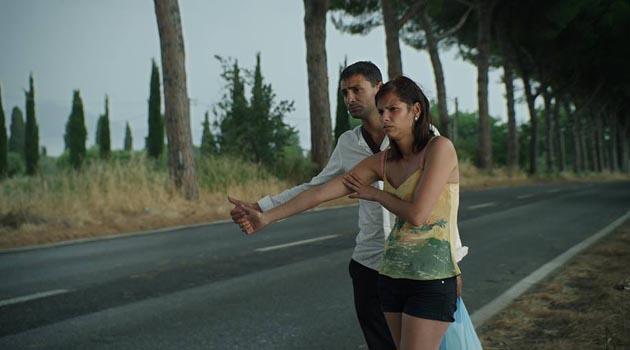Romano Voďi magazine reviews new Czech film with Romani leading man, "Skokan"

“How am I supposed to start over? I don’t have a chance. I’ll start selling meth again, getting high, by winter I’ll be back in prison,” says Julius Oračko, the actor who has created what may be the first Romani leading man in the Czech feature-length film from director Petr Václav and producer Jan Macola, “Skokan” (“The Jumper”).
Thanks to the fact that these experienced filmmakers literally dragged Oračko out of jail when he was paroled after serving half of a recent sentence, employed him, and set him in the right direction, the actor ultimately did not waste the chance that he did get. Just like the Romani actors Klaudie Dudová or Zdeněk Godla from Václav’s previous film “Cesta ven” (“The Way Out”), we can now see Oračko on screen again in Czech cinemas and travel with him on his spontaneous trip through Italy and France to the famous film festival at Cannes.
The creators of the film have called it a road movie with comedic elements, a wild ride on a very limited budget with a small team who reportedly had a fantastic experience together. The story told about the young Romani protagonist, however, is a sad, almost documentary-like reflection of our times and our failure to comprehend human differences.
A documentary fairytale
Václav makes no secret of the fact that he just loves Romani people, and “Skokan” follows his previous films about and with them – “Marian“, “Cesta ven” and “Nikdy nejsme sami” (“We Are Never Alone”) – in which he has managed to perfectly describe negative Romani stereotypes against backdrops of what are mostly dark stories playing themselves out on the fringes of society. This time, however, he has not gone into social drama as usual, but has chosen a lighter filmic communication.
” ‘Skokan’ is a fairytale with documentary features, or maybe even a documentary with fairytale features,” the director describes this film, into which he has apparently also imprinted a poetic piece of himself. The protagonist is afraid he will never reap any rewards in a Czech Republic infected with drugs and racism and, like many other Czech Roma, believes he will live better, differently, outside the country.
The character hitchhikes to southern Europe, where he wants to find not just his girlfriend, who has had a child by him and is making a living through prostitution, but mainly to find his own happiness and money as well. The psychological price he pays for his journey, however, is too high, and the travel itself is full of obstacles that can only be overcome with great difficulty.
Finding himself without anybody at all – no family, no relationships, and basically nowhere – he simply must fend for himself. Despite the fact that he slowly ends up with nothing to eat, he washes his white shirt – his only property besides his microphone and speaker – every day and never gives up the struggle for a better future.
Most of the scenes were filmed as pure improvisation, taking advantage of the locations where the actor actually ended up during the real journey. “I did my best to capture, primarily, the main hero, his approach to life, his logic when problem-solving. The entire story, every detail of it, is based on that character, on his life experiences, his opinions and life philosophy,” the director says.
The approach actually succeeds. Together with authentic music and singing provided by the main hero himself, the film has a light, summertime feeling.
Certainly that is due to the brilliant camerawork and editing here, which captures with an almost documentary eye the journey of this Romani youth across Europe and also noiselessly follows the natural settings as they transform. In contrast to everyday tribulations, therefore, the film offers an actual space for reflection, even for quiet meditation.
The film’s only disadvantage is its ending, which is too protracted and tired, but even that is apparently intentional. The protagonist’s life is, after all, desperate and exhausting as well.
First published in Czech in Romano Voďi magazine (www.romanovodi.cz).
